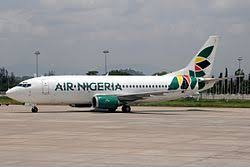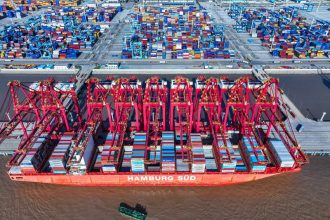The debate over whether Nigeria should revive a national airline or pursue a flag carrier model has resurfaced, with aviation experts and stakeholders urging the government to abandon outdated approaches and embrace more sustainable strategies.
Speaking in separate interviews with Sunday PUNCH, industry veterans warned that clinging to the national carrier model would likely repeat the costly mistakes that crippled Nigeria Airways, while the flag carrier option offered a pragmatic path toward competitive participation in global aviation.
Veteran pilot Capt Muhammed Badamosi underscored the importance of distinguishing between a national carrier and a flag carrier. According to him, a national carrier is wholly owned by the government, while a flag carrier is designated by a country to fly its flag but is jointly owned by multiple stakeholders, including government, private investors, and strategic partners.
“A national carrier is 100 per cent government-owned, while a flag carrier involves broader ownership structures. Government participation in a flag carrier does not make it a national carrier. An airline cannot be called a national carrier simply because the government holds a small stake. Ownership must be meaningful and shared among interested partners,” he explained.
Badamosi dismissed the popular assumption that partial government ownership automatically qualifies an airline as a national carrier. “What power does someone with five per cent shares have over larger shareholders?” he asked.
He cited examples from Africa: Ethiopian Airlines, RwandAir, and South African Airways are fully government-owned, operating as national carriers. In contrast, Kenya Airways operates as a flag carrier, with mixed ownership — 48.9 per cent held by the Kenyan government, 38.1 per cent by a lending consortium, 7.8 per cent by KLM, and 5.2 per cent by private investors.
“This is a clear model Nigeria can learn from. The global aviation trend has moved from national carriers to flag carriers, which are more flexible and viable,” Badamosi said.
Another veteran, Capt John Ojikutu, was blunt in dismissing any attempt to resurrect a government-owned national airline.
“Forget any form of commercial aviation in the name of the National Carrier in Nigeria today. It will end up as a Government Carrier gulping yearly subsidies,” Ojikutu warned.
He proposed a structured ownership model for a flag carrier: 30 per cent reserved for public investors, 10 per cent for federal and state governments, and 60 per cent for private airline operators and allied investors. “Anything outside this will simply be a continuation of past failures since 1993,” he cautioned.
Aviation analyst Cyril Obuah added another perspective, stressing that beyond economics, a national or flag carrier plays a symbolic role in projecting Nigeria’s global image.
“Nigeria, a country blessed with abundant resources and a population of over 200 million, cannot afford to remain without a recognised carrier on international routes. It is both symbolic and strategic for projecting the country’s potential to the rest of the world,” he argued.
Obuah blamed the collapse of Nigeria Airways on government interference and corruption, warning that current privately owned airlines were not immune to short-term opportunism.
“Some of these private airlines were set up mainly to move naira abroad quickly and cheaply. If the exchange rate were to stabilise and the naira equals the dollar, watch how many of them would collapse overnight,” he warned.
Nigeria Airways, once a major player in African aviation, collapsed in 2003 after years of mismanagement, debt, and political interference. Its failure left Nigeria dependent on foreign airlines for most international connections, resulting in significant revenue losses to the economy.
Experts say any attempt to recreate a government-run airline would likely replicate the inefficiencies that doomed Nigeria Airways. Instead, a flag carrier model with shared ownership, commercial discipline, and strong corporate governance offers the only viable path forward.
Industry watchers agree that the global aviation industry has evolved. Many countries that previously championed national carriers have shifted toward flag carriers or strategic airline partnerships to reduce financial risks.
Flag carriers allow governments to maintain national presence in aviation without bearing the full burden of ownership and operational costs. They also open opportunities for private capital and international expertise, which are critical in a competitive industry where efficiency and cost management determine survival.
For Nigeria, the choice between a national carrier and a flag carrier goes beyond branding. It is about safeguarding scarce public resources while ensuring the country benefits from reciprocal rights on international routes.
Stakeholders argue that with proper structuring, a Nigerian flag carrier could expand route access, reduce dependency on foreign airlines, and stimulate economic growth through job creation and tourism. However, they caution that success will depend on transparency, effective regulation, and a commitment to shielding the airline from political interference.
As Obuah concluded, “Nigeria needs a carrier that combines national pride with commercial discipline. A well-structured flag carrier, not a politically driven national airline, is what will put the country back on the global aviation map.”









